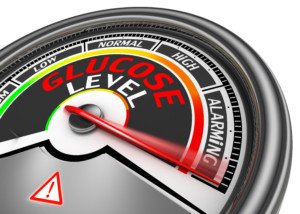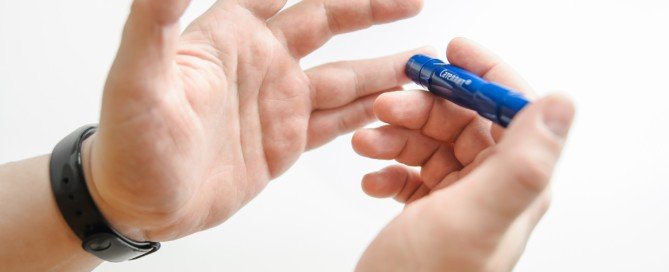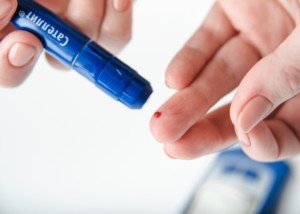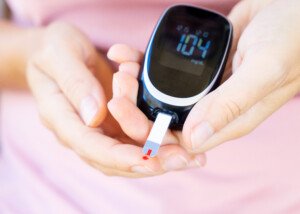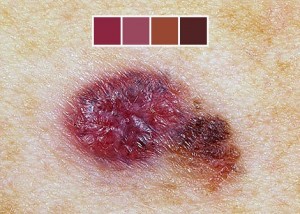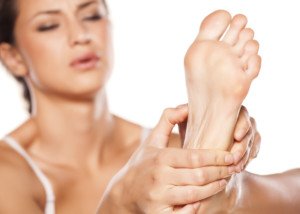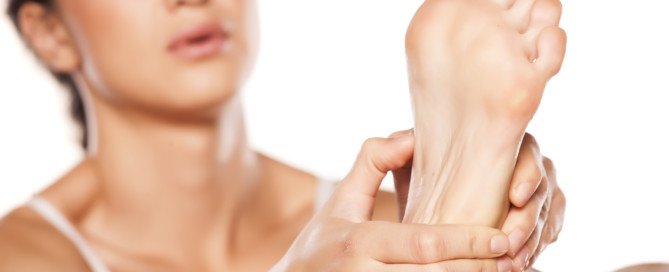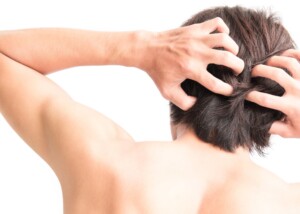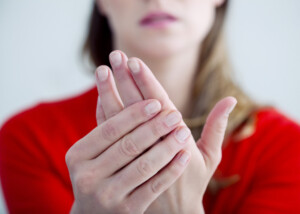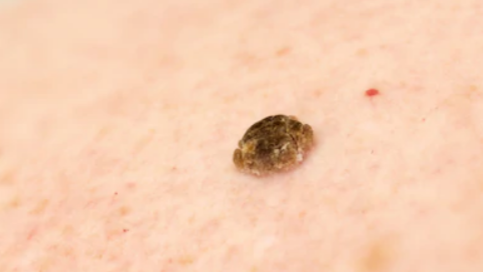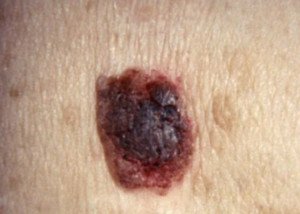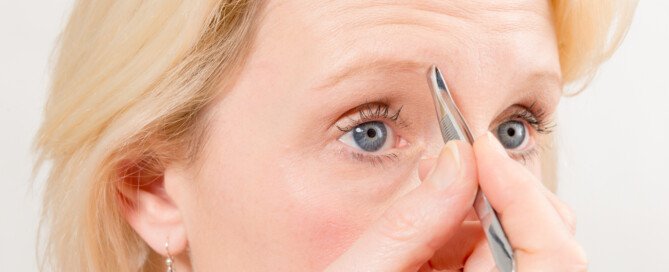Why Is Controlled Diabetes Still a Heart Disease Risk Factor?

If a patient’s diabetes is controlled, why would it still be considered a risk for heart disease?
What if this person is a type II diabetic and controls the condition with exercise and diet?
In type II diabetes, the pancreas produces insulin. The problem isn’t insulin production; it’s what the body does with it—or actually, doesn’t do with it.
The hormone insulin’s job is to shuttle blood sugar to muscle cells to fuel them.
On muscle cells are receptor sites for the insulin, where the blood sugar (glucose) is supposed to be handed over. But this process is impaired in the type II diabetic.
You’d think that controlling type II diabetes with diet and exercise would be sufficient to eliminate this metabolic illness as a risk factor for heart disease.
“Yes, diabetes is a risk factor for heart disease, even when individuals are active and managing their diabetes, says Alison Massey, MS, RD, LDN, registered dietitian and certified diabetes educator with over 10 years of experience in various community and clinical settings.
“Generally, there is more vascular disease in diabetes because endothelial function (lining tissue of the blood vessels) is altered in ways that accelerate atherosclerotic change in the body.”
That means plaque buildup in the coronary arteries.
Massey continues, “Diabetes can also lead to increased stiffness of the arterial walls (this is primarily associated with chronic high blood glucose levels).”
So now you see why, if blood sugar is always controlled, diabetes is still a risk factor for heart disease, due to non-optimal function of blood vessel linings.
An ounce of prevention is worth a pound of cure. If you do not have diabetes, then lifestyle choices will go a long way at preventing type 2 diabetes.
To help protect your heart from disease, you must take measures to prevent type 2 diabetes.
These include limiting processed food, filling up on lots of fresh vegetables and fruits, and a challenging regimen of aerobic and weightlifting exercise.
And of course — losing weight if you’re overweight.
Alison Massey has been working in the field of nutrition since 2010 helping individuals make sustainable changes to improve their health.
 Lorra Garrick has been covering medical, fitness and cybersecurity topics for many years, having written thousands of articles for print magazines and websites, including as a ghostwriter. She’s also a former ACE-certified personal trainer.
Lorra Garrick has been covering medical, fitness and cybersecurity topics for many years, having written thousands of articles for print magazines and websites, including as a ghostwriter. She’s also a former ACE-certified personal trainer.
.
Top image: Shutterstock/ Brian A Jackson
How Reliable Are Non-Fasting Blood Sugar Levels?

That number you see in your glucose meter after eating is very important.
The non-fasting value of blood sugar levels can indicate the possibility of prediabetes or diabetes.
“The timing of non-fasting blood glucose levels is important,” says Alison Massey, MS, RD, LDN, registered dietitian and certified diabetes educator with over 10 years of experience in various community and clinical settings.
“Typically, if someone has diabetes we suggest they monitor before meals (target 80-130 mg/dL) and sometimes post-prandially (two hours after meals) which should be less than 180 mg/dL.
“Monitoring a pre- and a two-hour after meal blood glucose provides individuals with diabetes a better idea of how the food they are consuming is impacting their blood glucose level.”
Values for Non-Fasting Glucose (Blood Sugar) and What They Mean
• For non-diabetics, the normal glucose reading two hours after a meal should be less than 140 mg/dL.
• You will likely be diagnosed with diabetes if any random blood sugar reading is at least 201.
Not all people with undiagnosed diabetes have symptoms (unintentional weight loss, fatigue, excessive hunger, excessive thirst or urination), though a few of these symptoms can also slip under the radar because the person blames them on “I’m getting old” or “I’m getting out of shape.”
Some people may blame unplanned weight loss or excessive hunger on stress.
Alert: A glucose reading (either fasting or non-fasting) that’s in the prediabetic range, should not be the be-all, end-all for being diagnosed with prediabetes.
Blood sugar can be elevated due to chronic stress, long-term insomnia or even short-term sleep difficulties.
Alison Massey has been working in the field of nutrition since 2010 helping individuals make sustainable changes to improve their health.
 Lorra Garrick has been covering medical, fitness and cybersecurity topics for many years, having written thousands of articles for print magazines and websites, including as a ghostwriter. She’s also a former ACE-certified personal trainer.
Lorra Garrick has been covering medical, fitness and cybersecurity topics for many years, having written thousands of articles for print magazines and websites, including as a ghostwriter. She’s also a former ACE-certified personal trainer.
How Long Should Diabetics Exercise After Eating Carbs?

Do you have diabetes and are wondering how long you can safely exercise after eating carbohydrates?
“Any physical activity after eating is good;, there isn’t a specific requirement,” says Alison Massey, MS, RD, LDN, registered dietitian and certified diabetes educator with over 10 years of experience in various community and clinical settings.
Exercise Recommendations for Diabetics
Massey says, “We do recommend that individuals with diabetes focus on incorporating at least 150 minutes a week of physical activity, and for individuals working on weight management I typically recommend striving for 250-300 minutes per week of physical activity.”
The problem that I’ve observed, as a former personal trainer and fitness instructor for a health club, is the varying ways that people interpret “physical activity.”
For diabetics, physical activity means the same thing as for people free of diabetes.
But diabetics, of course, should consume carbohydrates prior to exercise, during exercise and after exercise.
Examples of physical activity that count as exercise that will truly benefit diabetics and non-diabetics are as follows:
Resistance training with dumbbells, barbells, kettlebells, cable machines and tension tubing; aerobic activity such as brisk walking nonstop for at least 20 minutes, jogging, cycling, cardio classes, martial arts and inline skating; and jumping exercises with a low stool.
Alison Massey has been working in the field of nutrition since 2010 helping individuals make sustainable changes to improve their health.
 Lorra Garrick has been covering medical, fitness and cybersecurity topics for many years, having written thousands of articles for print magazines and websites, including as a ghostwriter. She’s also a former ACE-certified personal trainer.
Lorra Garrick has been covering medical, fitness and cybersecurity topics for many years, having written thousands of articles for print magazines and websites, including as a ghostwriter. She’s also a former ACE-certified personal trainer.
Can Bodybuilding Protect Against Type 2 Diabetes?

Bodybuilding can have a protective effect against type II diabetes, but this doesn’t’ mean you must develop huge muscles.
“Any type of regular physical activity (both cardio and strength training) are beneficial in reducing the risk of type II diabetes,” says Alison Massey, MS, RD, LDN, registered dietitian and certified diabetes educator with over 10 years of experience in various community and clinical settings.
“The mechanisms by which physical activity helps to prevent type II diabetes continue to be researched. Current research suggests that physical activity improves insulin action and lowers blood glucose levels.”
One such study report appears in the journal Diabetes (Feb. 2004, Holten et al). Two groups (one with type II diabetes and one healthy) underwent a course of strength training on a single leg for six weeks.
The weightlifting resulted in increased insulin sensitivity (the opposite of insulin resistance, which is a forerunner of type II diabetes). Insulin activity was increased in skeletal muscle.
This involves proteins and, what the report says was a more efficacious “insulin signaling cascade.”
So is bodybuilding better at preventing type II diabetes than a more run-of-the-mill strength training program?
In a way, it is. That’s because if you commit to a true bodybuilding program, your workouts will be more intense.

Freepik.com/yanalya
This doesn’t mean you must develop hulking muscles in order to fight off type II diabetes.
A committed bodybuilder doesn’t necessarily have giant muscles or a bulked-up look.
But when someone decides to take up bodybuilding, this affects how they approach every training session: with much more gusto and zest, like an attack on each routine.
It’s believed that lifting weights increases the number of insulin receptor sites on muscle cells.
Consider that having a large quantity of insulin receptor sites on your muscle cells as an extra layer of protection against type II diabetes.
Though other mechanisms are at play in the development of type II diabetes, building muscle through bodybuilding is a powerful deterrent to this metabolic disease.
Alison Massey has been working in the field of nutrition since 2010 helping individuals make sustainable changes to improve their health.
 Lorra Garrick has been covering medical, fitness and cybersecurity topics for many years, having written thousands of articles for print magazines and websites, including as a ghostwriter. She’s also a former ACE-certified personal trainer.
Lorra Garrick has been covering medical, fitness and cybersecurity topics for many years, having written thousands of articles for print magazines and websites, including as a ghostwriter. She’s also a former ACE-certified personal trainer.
Top image: ©Lorra Garrick
Source: diabetes.diabetesjournals.org/content/53/2/294
Spot Where Mole Was Removed Itches Soon After

What does it mean (melanoma?) when soon after mole removal, the area is itching?
Any time you have a mole removed, it should be biopsied—even if the removal was purely for cosmetic reasons. A mole with early melanoma can still look normal.
“After a biopsy has been performed, the skin is healing from the wound that has been induced, and that means the development of scar tissue,” begins Kally Papantoniou, MD, FAAD, with Simply Dermatology in NY.
“Wound healing signals the regrowth of skin and skin structures, regeneration of nerve fibers and release of cytokines which stimulate tissue remodeling.
“These changes can contribute to the skin itching when it is healing, and is a normal aspect of wound healing that can persist for even six months.
“This should not be alarming as a symptom in an area of a biopsy site, and it tends to improve over time.
“It is important, on the other hand, to observe the biopsy site for any physical changes such as the regrowth of the mole, or any change in the skin and area outside the original size of the mole that was removed.”
Could it be melanoma?
Dr. Kally says, “If the mole removed was proven to be benign by pathology, the chances of the biopsy site developing a melanoma is rare.
“If you are unsure and experiencing discomfort or itching, seek your dermatologist for an evaluation.
“It is always better to be safe, and no question is ever silly in dermatology.”
Dr. Papantoniou is a board certified dermatologist specializing in surgical, laser and cosmetic dermatology.
is a board certified dermatologist specializing in surgical, laser and cosmetic dermatology.
 Lorra Garrick has been covering medical, fitness and cybersecurity topics for many years, having written thousands of articles for print magazines and websites, including as a ghostwriter. She’s also a former ACE-certified personal trainer.
Lorra Garrick has been covering medical, fitness and cybersecurity topics for many years, having written thousands of articles for print magazines and websites, including as a ghostwriter. She’s also a former ACE-certified personal trainer.
.
Top image: Shutterstock/CHAjAMP
What Causes Those Tiny White Bumps Under Your Beard ?
Many men who proudly sport their beards have noticed tiny white bumps under their beard.
In fact, if you haven’t noticed this with your beard, take a close look. You just might be surprised.
This is a problem that dermatologists are very familiar with.
“The little skin [or white] colored bumps which occur under a beard is known as pseudofolliculitis barbae,” explains Kally Papantoniou, MD, FAAD, with Simply Dermatology in NY.
Pseudofolliculitis barbae: Yes, that’s a mouthful, but don’t let these nine syllables make you think this is a tough problem. It’s actually quite easy to remedy and prevent.
Dr. Kally says that essentially, these white bumps are “caused by ingrown hairs which get trapped under the skin and inflame the dermis, leading to scar-like little bumps which can be cosmetically unpleasing,”
Prevention of White or Flesh Colored Bumps Under the Beard
“To prevent these try an electric shaver, and do not try to get a very close shave, and shave in the direction of hair growth as opposed to going against the grain,” says Dr. Papantoniou, whose patients call her “Dr. Kally.”
These three tactics will tack time onto your morning shave. But this is what you must do to get rid of and prevent those white bumps.
Dr. Kally further explains, “Applying an antibacterial solution as an aftershave may also be helpful.
“Dermatologists may prescribe topical antibiotic solutions which work very well in conjunction with retinoids which help prevent further ingrown hairs and reduce the appearance of discoloration.”
Tips on Beard Growth
• Beard growth is driven by testosterone. But the answer to enhancing the growth is NOT testosterone supplements.
• The best and safest way to increase circulating testosterone is by strength training primarily the largest muscle groups (legs, back, chest).
• Another way to optimize testosterone production is to get seven to eight (not five or six!) hours of sleep a night.
• Keep in mind that genetics play a major role in beard growth, and not all men will be able to grow the beard they want.
• In the meantime, take good care of your beard as recommended above to prevent the little white bumps.
Dr. Papantoniou is a board certified dermatologist specializing in surgical, laser and cosmetic dermatology.
is a board certified dermatologist specializing in surgical, laser and cosmetic dermatology.
 Lorra Garrick has been covering medical, fitness and cybersecurity topics for many years, having written thousands of articles for print magazines and websites, including as a ghostwriter. She’s also a former ACE-certified personal trainer.
Lorra Garrick has been covering medical, fitness and cybersecurity topics for many years, having written thousands of articles for print magazines and websites, including as a ghostwriter. She’s also a former ACE-certified personal trainer.
.
Top image: Shutterstock/George Rudy
Red Itchy Bumps on Feet: Causes & Solutions

A dermatologist explains five causes of itchy red bumps on your feet.
“Red itchy bumps on the feet can be from a differential of possibilities, and this can be distinguished based on how they look at the morphology, and the distribution at where they are located,” says Kally Papantoniou, MD, FAAD, with Simply Dermatology in NY.
What are the five causes of itchy red bumps on one’s feet?
Fungal
Dr. Kally says, “A fungal rash on the feet usually involves the area in between the toes. White mushy skin or flaking is often seen.
“Look for scaling around the foot, and red bumps with pus can rarely occur.”
Eczema
“This is very common on feet, and occurs on the top of the foot and instep; is usually very itchy, and occurs in poorly circumscribed red scaling rough patches and can lead to clear fluid filled bumps that are called vesicles,” says Dr. Kally. “The spaces in between the toes should be clear.”
Psoriasis
“Psoriasis can be difficult to distinguish from eczema,” notes Dr. Kally.
It can occur in the same location as eczema “but will usually be thicker, and clearly circumscribed, which means you can almost draw a line where the lesions start and where healthy skin begins.”
Bites
Bugs like to bite feet. Dr. Kally explains that if there’s no scale and the red itchy bumps look like bites, “it could be bed bug bites, which are so common now in metropolitan areas, and will often be arranged in groups of three or four and occur in a linear fashion.
“However another type of bite that can cause red bumps could be from scabies or even fleas.”
Dermal Process
“If there is no surface change but small red bumps there could be an inflammatory process that is occurring under the skin such as: hives, granuloma annulare, sarcoidosis, and many other rarer skin conditions.”
Never self-diagnose, says Dr. Kally, if the itchy red bumps aren’t showing signs of disappearing after two weeks of home care.
See a dermatologist. You may even need a biopsy.
Dr. Papantoniou is a board certified dermatologist specializing in cosmetic, laser and surgical dermatology.
is a board certified dermatologist specializing in cosmetic, laser and surgical dermatology.
 Lorra Garrick has been covering medical, fitness and cybersecurity topics for many years, having written thousands of articles for print magazines and websites, including as a ghostwriter. She’s also a former ACE-certified personal trainer.
Lorra Garrick has been covering medical, fitness and cybersecurity topics for many years, having written thousands of articles for print magazines and websites, including as a ghostwriter. She’s also a former ACE-certified personal trainer.
.
Top image: Shutterstock/Vladimir Gjorgiev
Mole vs. Lentigo: Dermatologist Sets the Difference Straight
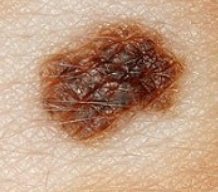
Common mole: very close-up view
Think that a lentigo is the same as a mole (nevus)?
I’ve been told they are, and aren’t, by two different dermatologists.
“Lentigos are superficial tan to brown flat spots on the skin which are often secondary to ultraviolet exposure and will occur on sun exposed areas,” says Kally Papantoniou, MD, FAAD, with Simply Dermatology in NY.
“They are formed by an increase in the number of melanocytes in the base of the epidermis.
“Because of the superficial nature of lentigos they are also easier to remove with laser treatments, and lightening is also possible with creams and chemical peels.
“A melanocytic nevus or mole is usually a darker spot, and will often be raised.
“It is composed of nests of melanocytes which are clustered together and they occur at the base of the epidermis and will extend deeper into the dermis.
“The deeper component to a mole is what makes it difficult to remove superficially without regrowth of the mole occurring.”
Keep in mind that moles can be light brown or tan, and that sometimes, a lentigo can be more like a milk chocolate color.
But Dr. Kally does explain that there’s a difference between these two types of pigmented lesions.
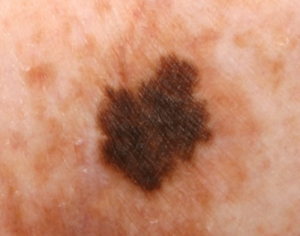
Lentigo: very closeup view
What you see on your leg that looks like a common mole may actually be a lentigo, or vice versa.
It’s not all that uncommon for a person over the age of 40 to acquire new lentigos, but they may appear to a dermatologist to be moles.
A biopsy will distinguish one from the other.
A new lentigo or mole, by the way, in middle age, is nothing to be alarmed about.
However, if you notice a new spot, have a dermatologist check it, and include it in your monthly self-skin exams for any signs of evolution: dynamic changes over a period of several months; fast increase in size (especially if asymmetrical); reds or maroons in it; portions turning black; development of crusting or bleeding.
Here is a second dermatologist’s explanation of the difference between a mole and a lentigo.
Dr. Papantoniou is a board certified dermatologist specializing in cosmetic, laser and surgical dermatology.
is a board certified dermatologist specializing in cosmetic, laser and surgical dermatology.
 Lorra Garrick has been covering medical, fitness and cybersecurity topics for many years, having written thousands of articles for print magazines and websites, including as a ghostwriter. She’s also a former ACE-certified personal trainer.
Lorra Garrick has been covering medical, fitness and cybersecurity topics for many years, having written thousands of articles for print magazines and websites, including as a ghostwriter. She’s also a former ACE-certified personal trainer.
Loosened Mole Looks Like It Can Be Flicked Off
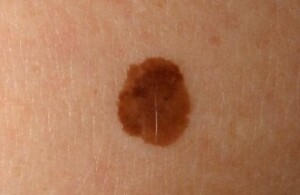
Is a loosened mole that looks like it can be flicked off melanoma or benign?
“This could be a true ‘mole,’ which means it is made of melanocytes, or it could be a vascular growth such as an angioma, or even a skin tag or seborrheic keratosis [image above],” says Kally Papantoniou, MD, FAAD,with Simply Dermatology in NY.
• Melanocytes are the cells that give a mole its pigment.
• An angioma is a benign concentration of extremely tiny blood vessels.
• A seborrheic keratosis is a harmless skin barnacle.
If something on your skin looks like a mole, as well as appears that it could be flicked or peeled off, it’s most likely a seborrheic keratosis and very unlikely to be a melanoma.
In fact, it’s possible for a seborrheic keratosis to be picked off—but don’t do it.
An actual mole cannot be readily picked off, even if it’s elevated and “catches” on a fingernail. Never try to pick off a mole or any spot on your skin.
Melanoma can grow inside a seborrheic keratosis but is not part of this benign skin barnacle.
Rather, if a melanoma is there, it’s just a coincidence that the cancer is growing in or very near the barnacle.
“If you have a growth that you are concerned about that has changed and is traumatized or appears like it can be easily flicked off, I would suggest having a dermatologist evaluate,” say Dr. Kally.
“It is always safer to be cautious; you don’t want to misdiagnose a malignancy, and if it is traumatized at home it could potentially become infected.
“Removing a growth like this is very simple and comfortable to do; most patients barely even feel the pinch from the anesthetic.”
Moles are not meant to be flicked or picked off.
Dr. Papantoniou is a board certified dermatologist specializing in cosmetic, laser and surgical dermatology.
is a board certified dermatologist specializing in cosmetic, laser and surgical dermatology.
 Lorra Garrick has been covering medical, fitness and cybersecurity topics for many years, having written thousands of articles for print magazines and websites, including as a ghostwriter. She’s also a former ACE-certified personal trainer.
Lorra Garrick has been covering medical, fitness and cybersecurity topics for many years, having written thousands of articles for print magazines and websites, including as a ghostwriter. She’s also a former ACE-certified personal trainer.
Why Do Light Plucked Eyebrow Hairs Have Dark Roots?
There’s a simple reason why light eyebrow hairs that are plucked have dark roots.
“The root or bulb of the follicular unit has the highest concentration of melanocytes,” says Kally Papantoniou, MD, FAAD, with Simply Dermatology in NY.
“These are the cells that produce pigment and contribute to the color of hair and skin.
“The hair shaft may be light in color, but the roots of the hair follicle will usually be darker.
“This is why lasers work for hair removal; they are targeting the darker pigment at the roots which destructs [sic] the germinal center and prevents further hair growth.
“This same principle is why laser hair removal is not successful in those with white hairs or very light blonde hair.”
Dr. Papantoniou is a board certified dermatologist specializing in cosmetic, laser and surgical dermatology.
is a board certified dermatologist specializing in cosmetic, laser and surgical dermatology.
 Lorra Garrick has been covering medical, fitness and cybersecurity topics for many years, having written thousands of articles for print magazines and websites, including as a ghostwriter. She’s also a former ACE-certified personal trainer.
Lorra Garrick has been covering medical, fitness and cybersecurity topics for many years, having written thousands of articles for print magazines and websites, including as a ghostwriter. She’s also a former ACE-certified personal trainer.
.



